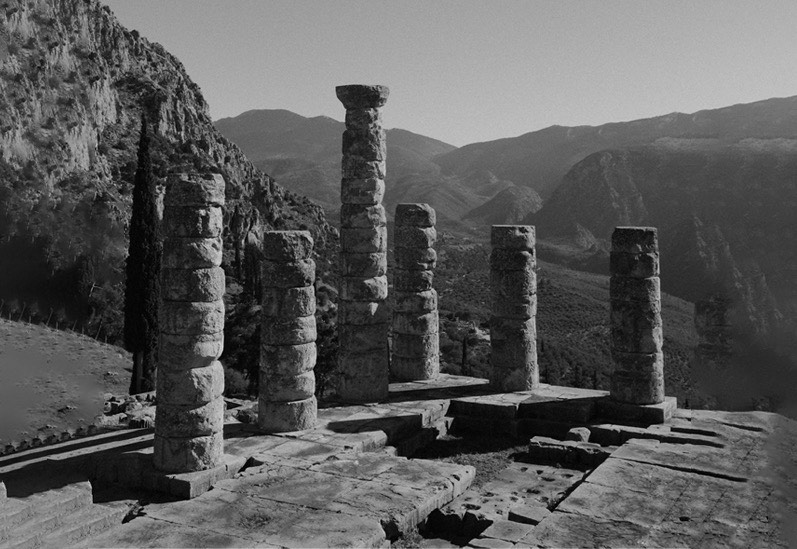“Make Politics Great Again.” That was the parting remark following a conversation I shared with fellow participants at the Delphi Economic Forum (9-12 April 2025), featuring none other than Dimitrios Avramopoulos, former European Commissioner, former Mayor of Athens, and a long-serving Minister across more government portfolios than one can count. The discussion covered a wide range of topics, from domestic politics and foreign affairs to the challenges facing today’s political leaders and the crucial role a united Europe must play in the evolving geopolitical landscape.
One of the most striking moments from the conversation with Dimitrios Avramopoulos was his call to revisit and revive the foundational values that built Europe, values like democracy, solidarity, and shared destiny. In his words, it is these “roots” that need to be brought back to life if Europe is to navigate the uncertain geopolitical waters ahead. These values were never abstract ideals, they were hard lessons painfully learned by a continent that tore itself apart twice in the last century. Out of the rubble of war came a bold experiment in unity, formalized in initiatives like the Schuman Declaration and later the Treaty of Rome, not just to prevent conflict, but to offer a common future built on mutual respect and cooperation. Yet somewhere along the way, those founding aspirations were diluted. Bureaucracy took precedence over vision, and economic integration often outpaced cultural and political convergence. Europe became more connected on paper than in practice.
Across the continent, trust in institutions is eroding. Citizens no longer see politics as a vehicle for collective progress. They rather see it as a stagnant arena of careerism and broken promises. The Tempi railway tragic accident on 28 February 2023 in Greece, with its 57 dead people, mostly youth was a tragic turning point. Not only for the lives lost and the systemic failures it revealed, but for the wave of public anger it unleashed. The protests that followed were not solely directed at a single government but at an entire political class. What made Tempi significant wasn’t just the event itself, but what it symbolized: a breaking point in the social contract. For many, it was proof that the state is no longer capable of protecting its people. That kind of despair doesn’t just erode confidence in individual governments or ruling parties, it undermines trust in politics as a whole. Anti-politics thrives where people feel unheard. The more detached our political systems become from the daily concerns of citizens, the more space we leave for cynicism, populism, and extremism to grow. It’s not enough to protect democracy structurally; we have to make it feel real and responsive again.
The conversation also turned to the role of political leadership today and where it’s falling short. Avramopoulos made a clear distinction: “Politicians should only discuss with society, not just with other leaders.” His point was that legitimacy does not come from negotiating among elites, it comes from being in constant dialogue with the people. He added, in one of the most memorable lines of the session: “If society carries you on its shoulders, it will take you as far as you could possibly reach, even take you home sometimes.” This metaphor is powerful because it reframes leadership not as authority granted by office, but as trust earned through service. Leaders are not defined by their titles, but by the willingness of people to believe in them, support them, and walk beside them. This is especially crucial now, when representation often feels hollow and performative. We need leaders who reflect the struggles and hopes of the societies they claim to represent. Leadership built not on image, but on substance.
This shift in leadership and representation must also be accompanied by a broader cultural shift, one that redefines what it means to be European. In a comment a friend made on my last Katoikos article, he added a dimension I hadn’t fully considered: that it is not enough to unify leaders, the real challenge is to unify the diverse European people. “In the U.S., individuals are Americans first and New Yorkers second,” he noted. That kind of shared identity is hard to build, and even harder to replicate across Europe. And he was right. Our national histories run deep, so deep that even today, a crisis in one country is rarely seen as a European issue. But perhaps that’s the mindset we must challenge. We have built a Union of institutions; now we must build a Union of purpose. A Union rooted not in homogeneity, but in shared responsibility. If Europe is to be more than a bureaucratic project, it must become a lived identity, something that connects people not only through policy, but through solidarity, shared vision, and a sense of common destiny.
Maybe that’s what “Make Politics Great Again” really means, not a return to old paradigms, but a revival of purpose. Politics that doesn’t chase approval ratings or settle for the theatrics of leadership, but one that earns trust by listening, by serving, by uniting. At a time when so many are turning away from politics altogether, perhaps the real task is not to abandon the system; but to reclaim it; to restore its meaning, its dignity, and its relevance to people’s lives.


